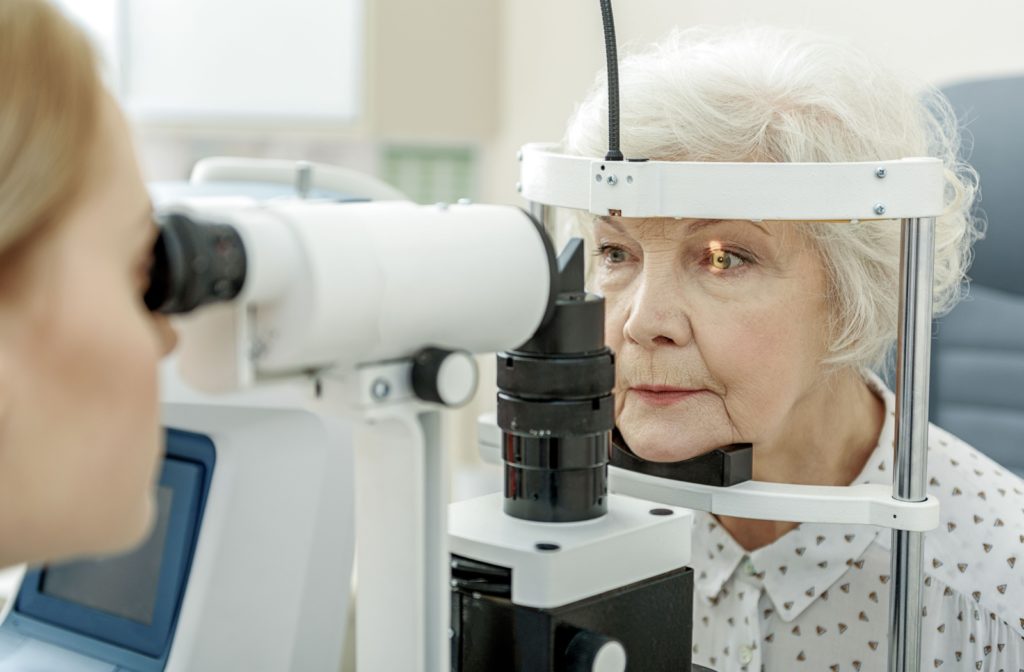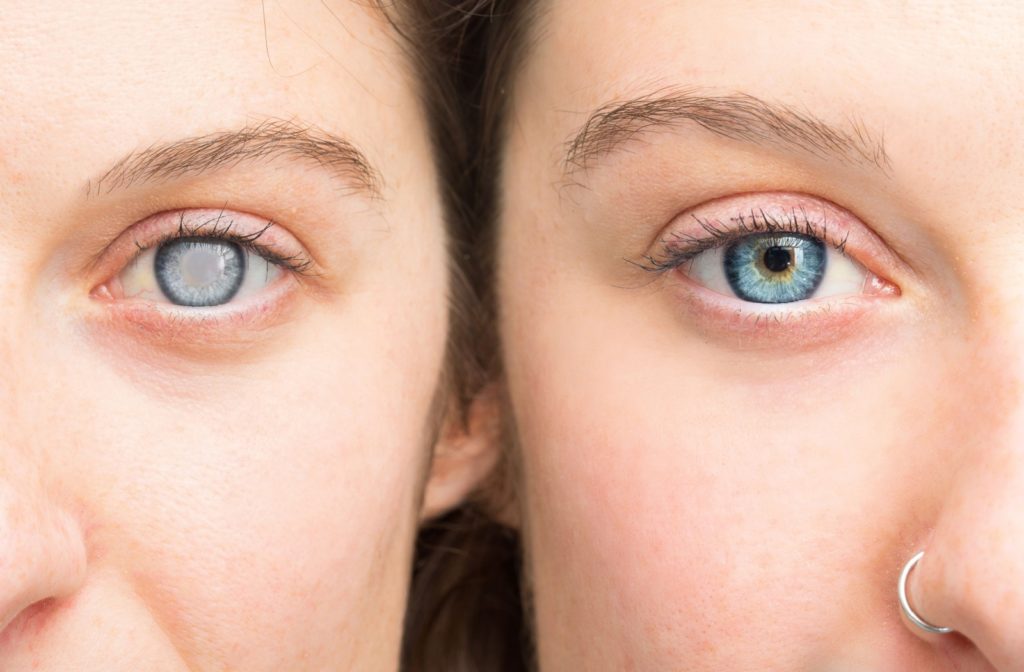Vision is one of our most critical senses, and when it starts to deteriorate, it can significantly impact your daily life. Cataracts are an eye condition that can blur your vision and affect your overall quality of life.
Cataract surgery can help you regain your vision, enhance your color sight, increase your safety, and improve your quality of life. This common and safe procedure has helped millions of people see more clearly. However, as with any surgery, it comes with its share of risks and disadvantages, including infection, swelling, bleeding, visual disturbances, corneal edema, and in rare cases, retinal detachment.
Surgery is an individual decision, and you can discuss whether it’s right for you with your eye doctor at Total Vision Pleasanton. Our experienced team is here to guide you through the benefits and considerations to help you make an informed choice.
Benefits of Cataract Surgery
Cataract surgery provides numerous benefits that can significantly enhance your quality of life. Here are some key advantages:
- Improved Vision: Restores clear and sharp vision, reducing blurriness and enhancing your ability to see details.
- Better Quality of Life: Enhances daily activities such as reading, driving, and recognizing faces, contributing to a more active and independent lifestyle.
- Enhanced Colors: Restores the vividness of colors, often dulled by cataracts, allowing you to see the world more vibrantly.
- Increased Safety: Reduces the risk of accidents caused by poor vision, aiding in safer mobility and daily tasks.
- Quick Recovery: Modern cataract surgery typically involves a fast recovery period, with many patients experiencing significant vision improvement within a few days.
- High Success Rate: Cataract surgery is one of the most commonly performed and successful surgeries, with a high patient satisfaction rate.
- Reduced Dependence on Glasses: While glasses or contact lenses may still be necessary, many patients find their need for prescription glasses or contact lenses significantly reduced after surgery.
- Long-Lasting Results: The effects of cataract surgery are usually permanent, providing long-term vision improvement.
Discuss these benefits with your eye doctor at Total Vision Pleasanton to determine if cataract surgery is the right choice for you.
Possible Downsides of Cataract Surgery
Cataract surgery is a common and low-risk procedure that has transformed the lives of millions by restoring clear vision. However, like any surgical intervention, it does come with certain risks.
- Infection Risk: Making an incision in the eye poses a risk of infection. While surgeons strive to maintain a sterile environment, there is always a slight possibility of postoperative infection.
- Swelling and Discomfort: Temporary discomfort or swelling may occur after surgery. These are common side effects but can be bothersome for some patients.
- Visual Disturbances: While cataract surgery aims to improve vision, some patients may experience visual disturbances such as glare or halos around lights. These symptoms are usually temporary but can affect daily activities during the initial recovery period.
- Posterior Capsule Opacification (PCO): PCO occurs when the lens capsule becomes cloudy after cataract surgery, leading to a gradual decline in vision. Although a laser procedure called YAG capsulotomy can easily address PCO, it is an additional intervention that some people may find inconvenient.
- Retinal Detachment: While rare, retinal detachment is a serious complication that can occur after cataract surgery. It is essential for patients to be aware of the symptoms, such as sudden flashes of light or floaters, and seek prompt medical attention if they occur.
- Intraocular Lens Complications: During cataract surgery, your natural lens is replaced with an artificial intraocular lens (IOL). The IOL comes with its own risks, such as incorrect power calculation, dislocation, or issues with the positioning of the lens.
- Bleeding: Though very uncommon, bleeding within the eye can occur during or after surgery, potentially leading to vision issues.
- Corneal Edema: Swelling of the cornea is a possible complication of cataract surgery that can affect your vision. It typically resolves with time, but you may experience blurred vision during the healing process.

Healing Process
Cataract surgery recovery varies for each patient, but adhering to certain guidelines can help make sure of a smooth healing process. It’s important to follow your eye doctor’s postoperative instructions, which typically include using prescribed eye drops and attending follow-up appointments. Avoiding strenuous activities, bending over, and heavy lifting can prevent undue pressure on the eyes.
Protecting your eyes from irritants like dust and wind by wearing sunglasses is also essential. Refrain from rubbing your eyes, even if they feel itchy or uncomfortable, and avoid getting water in them to prevent infection. It’s also advisable to wear an eye shield while sleeping to avoid accidental injury. By following these expert tips, patients can enhance their recovery and achieve optimal vision results after cataract surgery.
Clarity Beyond Cataracts
Cataract surgery is a standard and safe procedure. However, it’s essential to understand the disadvantages and risks involved and weigh them against the benefits. We recommend discussing your options with your eye doctor at Total Vision Pleasanton to help you decide. Any surgical risks should be taken seriously, but cataract surgery is an exceptional option for restoring your vision.
Book a consultation today to determine if cataract surgery is right for you.



